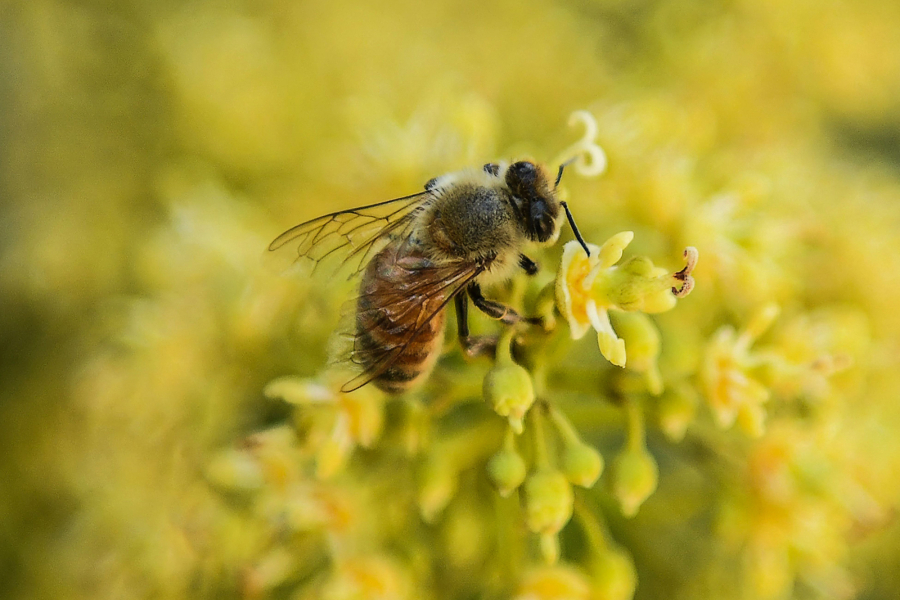The global honeybee crisis has reached alarming levels in Quebec’s blueberry pastures.
It’s flowering season at Nicolas Pedneault’s farm in the French-speaking Canadian province and every bee that lands on a blossom helps boost his blueberry crop. Hundreds of hives dot his fields, but he needs more—and can’t get them.
“We don’t have enough pollinators,” said Pedneault, who fears his output will be slashed. “Every honeybee hive we don’t get is impacting our fields.”
Blueberry growers across the entire country face similar troubles due to a shortage of the commercial hives they rely on to boost their bounty of Canada’s most valuable fruit crop. Canadian beekeepers have on average lost half their colonies this year, and in some areas there’s almost total collapse. That leaves berry farmers with a crippling bee shortage and few suppliers to fill the void.
“We probably haven’t seen this high of losses since one of our early years in beekeeping,” said Kevin Nixon, who has been in the business for nearly three decades. He lost 40 percent of the 10,000 hives he manages south of Red Deer, Alberta. “I know some guys that lost 90 percent.”
Beekeepers worldwide have been reporting massive honeybee deaths for years, but in parts of Canada this year’s losses are catastrophic. The impact on the $211 million blueberry market in Canada, the world’s seventh largest exporter, is a warning to the world of what happens when there is a breakdown in the fragile pollination industry.
“I’ve not heard of other places where there’s been a pollination shortfall,” said Robert Paxton, zoology head at Germany’s Martin Luther University Halle-Wittenberg. “Beekeepers are having more problems maintaining their colonies and there’s more demand for their colonies for pollination.”
The industry in North America has expanded to support a boom in fruit and vegetable acres as wild bee numbers withered. Beekeepers who struggled to make money selling honey started renting out hives to farmers seeking to boost yields. “Pollination brokers” connected growers with hives, which today crisscross the continent on semi trucks to reach their destinations.
Bees play a key role in spreading pollen between flowering plants to trigger reproduction, ultimately giving the world nutritious and colorful foods such as apples, cherries, melons and almonds.
Overworked bees helped create a pollination crisis, said Mark Winston, a leading expert in the field.
“The paradigm of bringing in honeybees is at a breaking point,” he said. “Bees are not getting better; they are slowly getting worse.”



